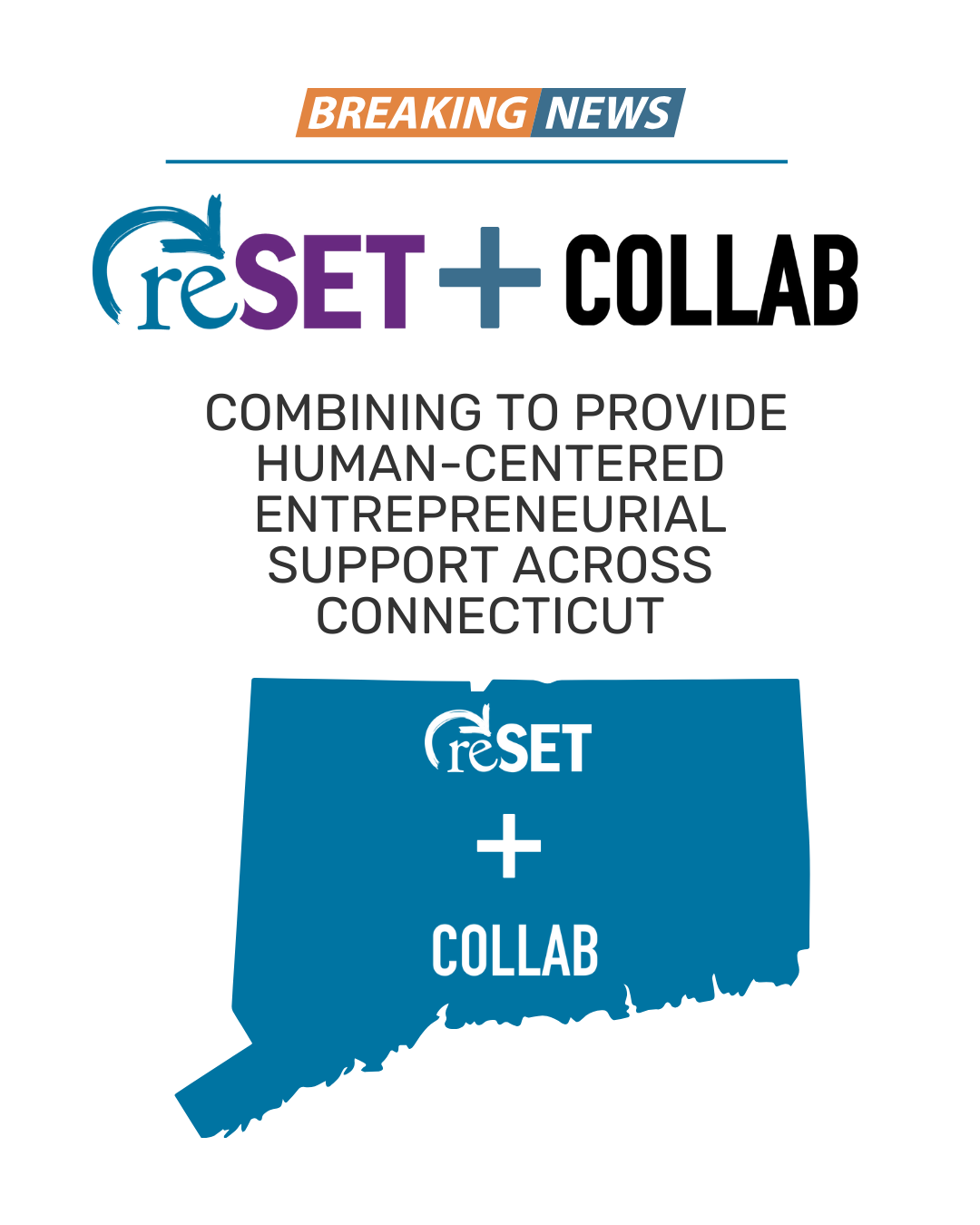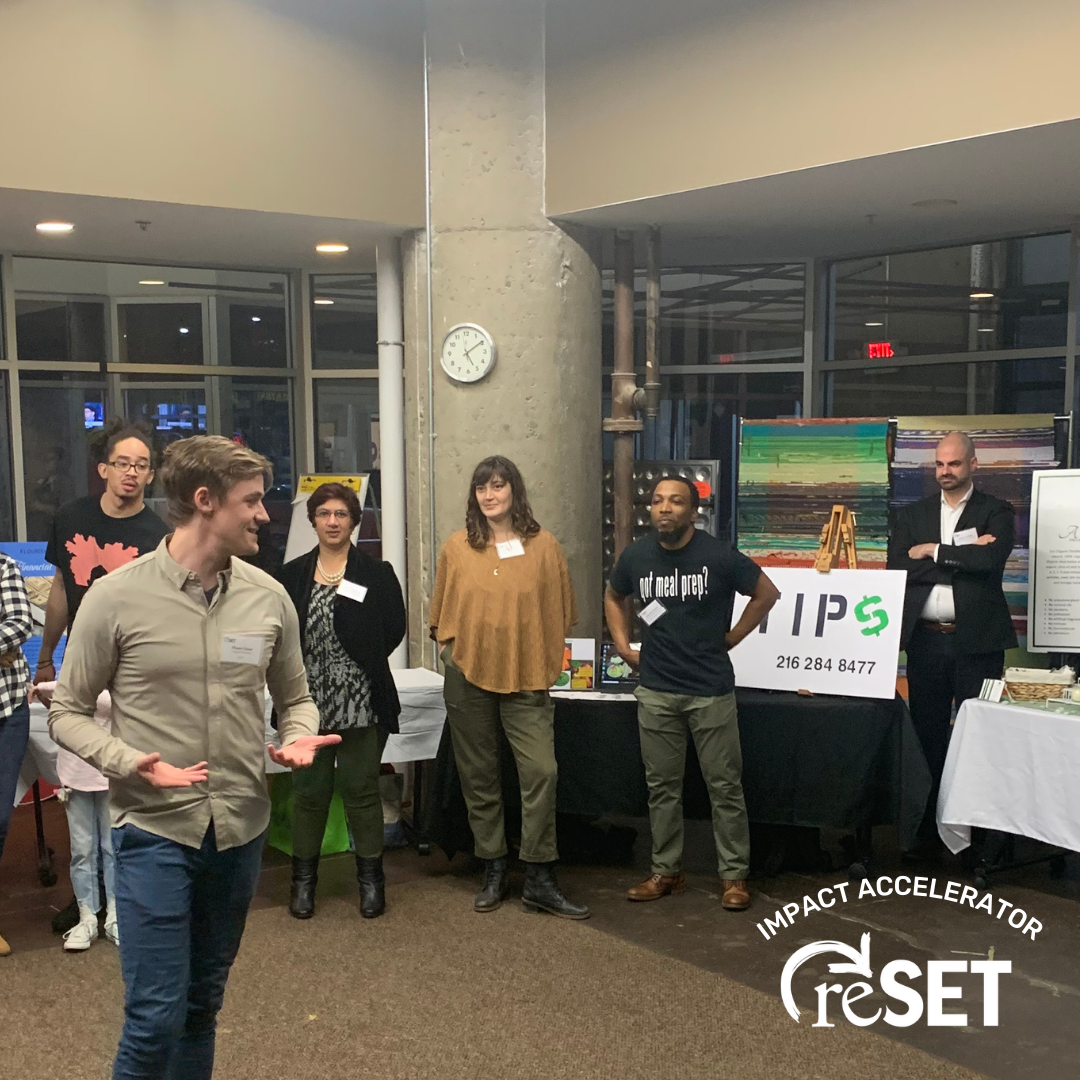For full Hartford Courant article details and related content, please click here.
For all the chicken skewers, cheeses, cookies and cakes being passed out and picked over at a Hartford entrepreneurship showcase this week, not a scrap was on Phood’s table.
That might have been considered waste, which is exactly what Phood, the West Hartford-based company that was the big money winner at the competition, is trying to reduce. Phood creates software that helps commercial kitchens reduce and manage food waste.
“We didn’t want to have food waste on the table and have people think it was nachos or something,” joked Luc Dang, founder of Phood.
The company’s mission still resonated with the three judges selected by reSET, a Hartford nonprofit organization that supports local entrepreneurs, particularly those who aim to solve social problems. ReSET is funded by the state and a consortium of businesses, including the Walker Group and the MetroHartford Alliance.
After a final pitch at the Mark Twain House and Museum, Phood was the big money winner in the reSET Venture Showcase competition Wednesday, taking home the Walker Group’s Tech Impact Award and a reSET Impact Award for a total of $14,000.
A total of 17 companies graduated from this year’s accelerator, a four-month program that connects fledgling entrepreneurs with mentors, experts and customers.
Two other finalists took home reSET Impact Awards. Career Path, a New Milford company that developed a mobile app to help college career centers engage students, won the “best business” prize and $10,000. Pelletric, a remote patient monitoring technology company based in Norwalk, won $6,000.
The winners beat four other finalists Wednesday night: business social network Alma Suite, commercial shipping app Eureeka BI, athletic performance tracking service Optima Sports System and athletic apparel company Sweetflexx.
Since its creation in 2007, reSET says it has has awarded more than $250,000 to new and growing businesses, and its graduates have generated $4.4 million in revenue.
Those results have taken time, but Phood is well on its way. In 2015, Dang put his software system into use on half of UConn’s campus, and in the fall, he will begin working with about 15 colleges in some capacity, including Yale and Wesleyan.
The system is simple to use, Dang said. Kitchens upload their menus and ingredients and then a scale placed under their trash bins helps track exactly how much of each item is thrown away.
“This is something that could be done with pen and paper, but we’ve streamlined that process,” Dang said.
Phood then offers high-impact suggestions for cutting back on food waste, a pervasive and costly problem in the United States.
Dang said some of the worst offenders are breakfast, salad and deli bars, where colleges can save food and money by putting out much smaller portions.
In 2016, The Guardian reported that about $160 billion worth of produce is wasted in the country each year — a third of all foodstuffs.
At UConn, Phood identified ways to reduce food waste by 50 percent and save $50,000.
“You can’t manage what you can’t measure,” said Dang.

Address:
1429 Park Street, Suite 114, Hartford, CT 06106
Phone:
(860) 560-9120
All Rights Reserved | reSET
Social Enterprise Trust, Inc is a not-for-profit organization recognized as tax-exempt under Internal Revenue Code section 501 (c)(3). .











